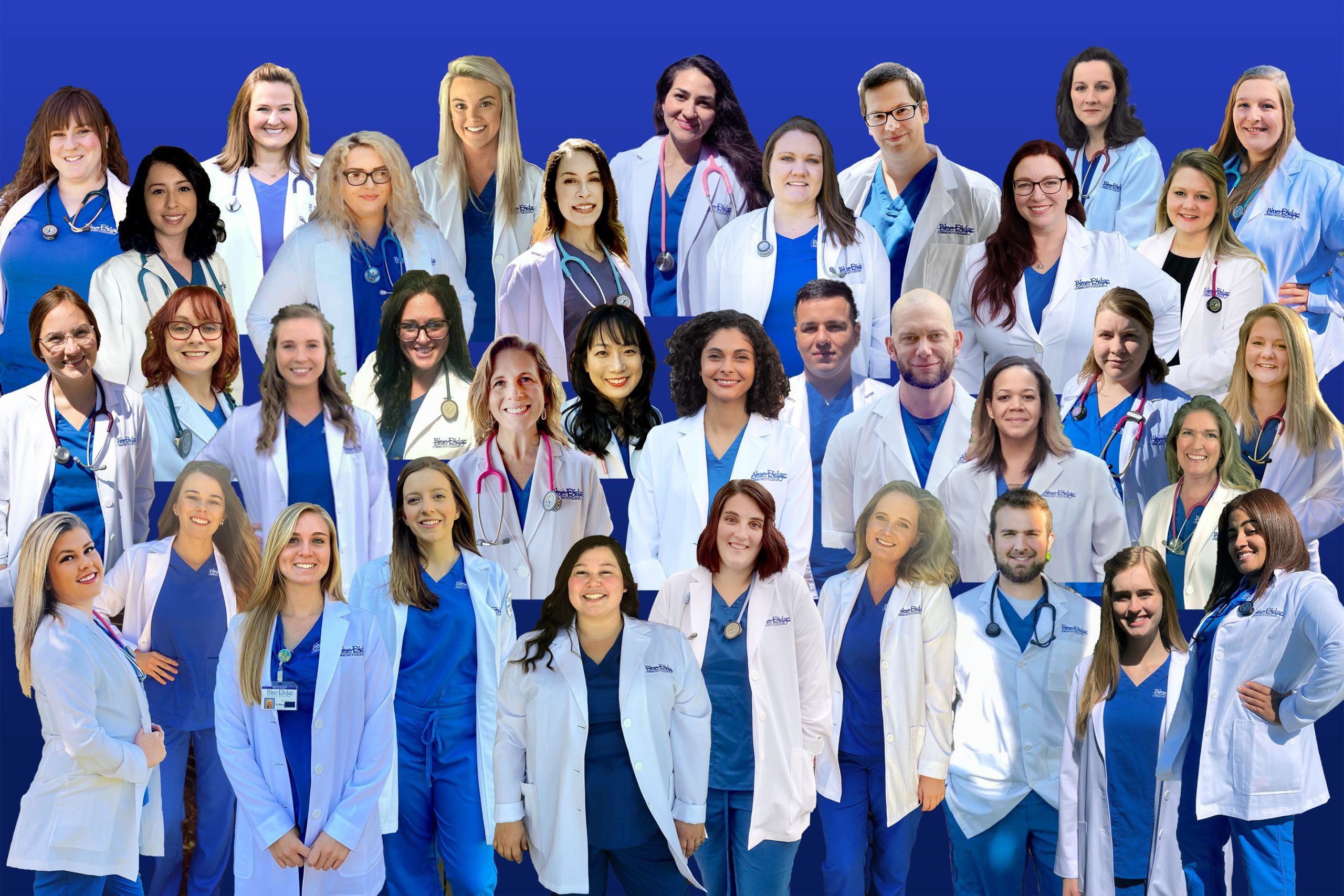
The need for healthcare professionals entering the workforce was amplified as a result of the COVID-19 pandemic. In response to the rise in the number of hospitalizations across the state, North Carolina community colleges looked for innovative ways to address the workforce gap. At Blue Ridge Community College, health sciences students were able to expedite their clinical requirements and were quickly employed in the healthcare industry, thanks in part to a Golden LEAF-funded simulation lab.
In 2016, Golden LEAF awarded $1,013,242 through the Community-Based Grants Initiative to provide simulation lab equipment and related technology and furnishings for the community college’s new Health Sciences Center. The equipment included lifelike mannequins that simulate different medical procedures and reactions to those procedures, which students are able to use in place of some of their clinical experiences. Blue Ridge Community College, Pardee Hospital, Henderson County Public Schools, and Wingate University collaborated to help bring the state-of-the-art center to life.
As with so many sectors, the pandemic presented new and unique challenges for the community college’s allied health training programs. Partnering institutions were not able to allow students to complete clinicals on their premises due to the lack of available personal protective equipment (PPE) and other safety protocols.
“We were very fortunate to have the simulation labs funded by the Golden LEAF Foundation to supplement student’s clinical experiences,” said Leigh Angel, Dean of Health Sciences at BRCC. “Our nurse aide and nursing programs stayed on track, without delays in graduation.”
Students were able to obtain licensures early and start working two weeks before graduation.
“The Board of Nursing extended the number of hours that students could use simulation for clinical hours, so we were able to get their hours in,” said Deb Henry, Director of Nursing at BRCC. “We brought students and faculty to campus in small groups in order to meet our clinical obligations. All of our students graduated on time and tested a little bit earlier than they would have normally been able to, due to rule changes that allowed them to start work before they tested for their licensing exam. It was exciting that our students could get to work so quickly.”
All 39 students in the senior health sciences cohort graduated. Many had jobs before graduation.

Leslie Haynes, who served as the President of the Transylvania County Campus Nursing Club at BRCC, graduated this spring. She now works at Transylvania Regional Hospital in its Intensive Care Unit.
“Blue Ridge has worked hard to develop the best programs, with the best staff, to best serve our community,” said Haynes. “I am thankful for the education and experiences I have received at Blue Ridge Community College.”

Another spring 2020 nursing graduate, Rebekah Bagwell accepted a job at Pardee UNC Healthcare.
Bagwell said about her experiences at BRCC, “I have enjoyed having the support and encouragement from my instructors as I have journeyed through the nursing program.”
Graduates of the health sciences programs were celebrated in a special ceremony.
“Each student was able to be pinned,” said Angel. “They drove their own vehicles with the family they were quarantined with, and at the end of the line, the college’s leadership honked their horns. It was quite special.”
Other positive outcomes have resulted from the pandemic.
“Some real gemstones,” said Angel. “We have been able to adapt really well and deliver education in a meaningful and effective way that still meets the needs of our workforce and student learners.”
The college’s allied health program also has seen increased enrollment.
“Many of our programs have moved online and I believe moving online has increased options for our students,” said Angel. “Not everyone can come on site. These are working families, and life takes priority. Offering courses in a different format can really meet the needs of our community.”
The two previous cohorts of Associate Degree in Nursing students had 68 graduates, with 60 finding full time employment in their field. The program has also helped train 178 incumbent workers.